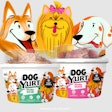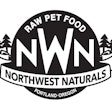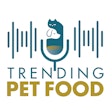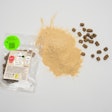
Addiction Foods has voluntarily recalled 355 cases of canned dog food after product testing revealed high vitamin A levels and a problem with calcium/phosphorus ratios, according to a company press release.
There have been no reports of pet health concerns. If dogs were fed exclusively these products for 60 days, the expected effect would be a reduction in appetite. Exposure to excessive Vitamin A levels for an extended period of time may cause adverse health consequences in young, growing animals.
The food was manufactured in New Zealand and shipped between February 11 and March 19. Both brick-and-mortar and online distributors received the recalled products.
Consumers who purchased the items listed above should discontinue use of the product and may return any unused cans to the place of purchase for a full refund. Consumers with questions may contact the company at 425-251-0330, or via email at [email protected]. Our office hours are Monday thru Friday 9am to 5pm PST.
Addiction New Zealand Brushtail and Vegetables Canned Dog Food Entrée (13.8oz/390g)
Quantity: 8 cases
UPC code: 8 885004 070028
Lot number: 8940:02Dec2018
Expiration date: December 2018
Addiction New Zealand Venison and Apples Canned Dog Food Entrée (13.8oz/390g)
Quantity: 347 cases
UPC code: 8 885004 070462
Lot number: 8936:01Dec2018
Expiration date December 2018
Vitamin A in pet food
Vitamin A serves as a potent example of the necessity of balance in pet diet and nutrition, according to nutritionist Greg Aldrich, PhD, contributor to Petfood Industry. A deficiency can lead to blindness, skin lesions, reproductive issues and pneumonia, while vitamin A excess in pets may result in anorexia, diarrhea, bone deformities and cancer. So, a more-is-better approach is as detrimental as having none at all.
In other words, achieving just the right amount is all important, especially considering that vitamin A is derived solely from the pet’s diet. That puts the full responsibility for getting it right squarely on pet caregivers’ shoulders.
Many standard animal- and fish-based petfood ingredients like beef liver, chicken meal and fish oil contain measurable amounts of vitamin A. However, the level in the total mix of ingredients in a petfood may not be fully adequate to support the animals' needs. In addition, processing can destroy vitamin A and more may be depleted during storage. So, supplementation is typically required. To fill the gap, almost every commercial dog and cat food is supplemented with ingredients such as "Vitamin A Supplement," "Vitamin A Acetate" or some other form of vitamin A.
To learn more about specific components of pet food, visit the Petfood Industry Knowledge Center, a collection of premium content for pet food industry professionals. This library contains more than 100 articles by nutritionist Greg Aldrich, PhD, published in Petfood Industry since 2005. Articles cover specific ingredients that are grouped by category.
Registered users may view the following sample article at no charge. Receive 12 months of unlimited access to the entire Ingredient Issues library for only $99.95. Purchase here. View free sample: Poultry by-product meal and poultry meal: Is there a difference?


















